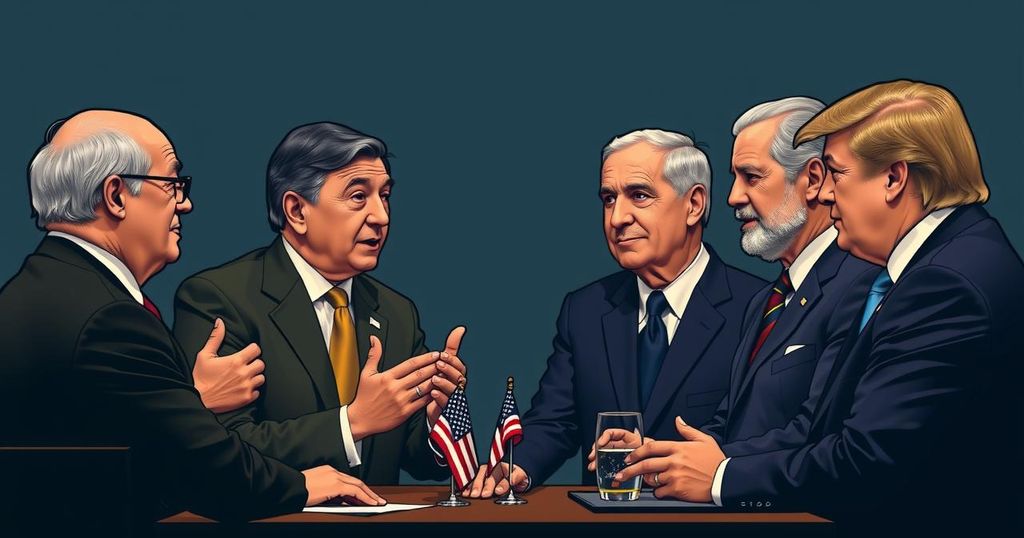World news
2024 PRESIDENTIAL ELECTION, AL JAZEERA, ASH, ASIA, CHATHAM, DONALD TRUMP, ELECTION, EUROPE, EUROPEAN UNION, INDIA, LABOUR PARTY, MEDIA, MOD, NATO, NORTH AMERICA, STATES, TRUMP, U.S. ELECTIONS, UKRAINE, UNITED STATES, US PRESIDENTIAL ELECTION, US PRESIDENTIAL RACE, WHITE HOUSE
Oliver Grayson
0 Comments
Global Perspectives on the U.S. Presidential Race: Harris vs. Trump
The U.S. presidential election between Kamala Harris and Donald Trump is generating significant interest globally, with world leaders expressing varied preferences. Putin seems to favor Trump, while many European leaders lean towards Harris. Both candidates carry implications for international relations, economic partnerships, and pivotal geopolitical issues.
As the United States presidential election draws near, world leaders are taking a keen interest in the contest between Democratic Vice President Kamala Harris and former Republican President Donald Trump. Among global leaders, preferences appear somewhat divided, reflecting their concerns regarding U.S. foreign policy and international relations under each candidate. Russian President Vladimir Putin seems to favor Trump, believing he would be easier to negotiate with regarding issues like Ukraine and sanctions. Conversely, leaders from Europe and NATO predominantly express a preference for Harris, who is perceived as more aligned with their values of democracy and cooperation. Chinese President Xi Jinping remains neutral publicly but insiders suggest he may lean towards Harris despite Trump’s claims of a strong personal rapport. Israeli Prime Minister Benjamin Netanyahu is recognized for his previous favorable relationship with Trump but has not publicly declared a preference for either candidate. In South Asia, Indian Prime Minister Narendra Modi is seen as neutral, recognizing the strategic importance of both candidates without clear preference. Moreover, this election could significantly impact existing alliances and trade relations, with potential consequences for the Asia-Pacific region and beyond, particularly with the sensitive geopolitical climate involving North Korea and China. The various stances taken by world leaders highlight the global implications of the upcoming U.S. election, shaping international strategies and diplomatic ties.
The upcoming U.S. presidential election is not only a pivotal event for Americans but also holds significant repercussions for international relations and global dynamics. The two primary candidates—Democratic Vice President Kamala Harris and former President Donald Trump—represent contrasting approaches to governance and foreign policy, particularly concerning NATO, China, and the Middle East. Global leaders are closely watching the election, as the outcome could reshape alliances, economic partnerships, and geopolitical strategies, especially in regions like Europe, Asia, and the Middle East. Understanding these international perspectives provides crucial insight into how different countries might react based on the election’s results and the subsequent administration’s policies.
In summary, the global interest in the U.S. presidential election underscores its critical role in shaping international relations. While Trump appears to have support from leaders like Putin, a significant proportion of European leaders prefer Harris for her commitment to democratic values and global cooperation. The emerging preferences of leaders worldwide illustrate the complex interplay between domestic electoral outcomes and international diplomatic relations, indicating that the next U.S. president will have substantial influence in areas such as security, trade, and governance on the global stage.
Original Source: www.aljazeera.com




Post Comment